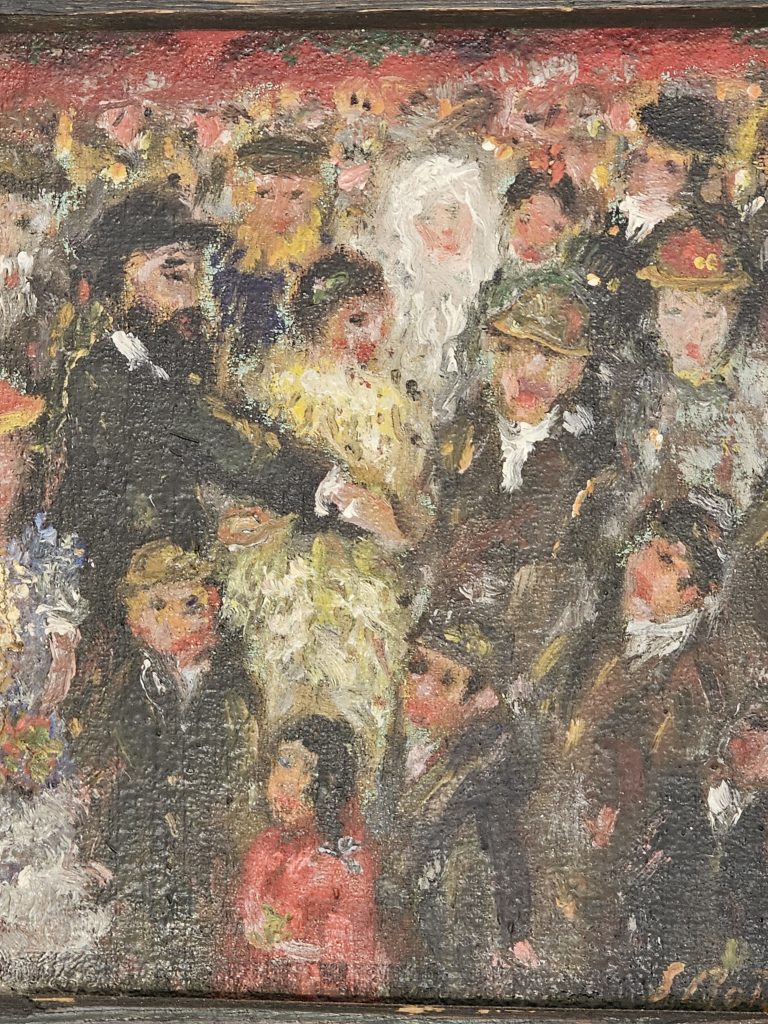In my essay “Secrets of the Talking Ass,” I discussed the phenomenon of Bein HaShmashot (twilight or dusk), which is neither day, nor night, nor both, nor neither, but rather a distinct state having its own unique status and laws associated with it. What is interesting about Bein HaShmashot from our point of view is that it has uncannily similar to the quantum-mechanical state of superposition. As we discussed in that essay, an electron can be in a state of superposition of having its spin up and down (with angular momentum directed counterclockwise and clockwise) or a photon in a state of superposition of horizontal and vertical polarization, or the Schrödinger cat in a state of superposition of being alive and being dead. Just as Bein HaShmashot the cat is neither dead, nor alive, nor both, nor neither but is in a distinct state of superposition of the two states, alive and dead.
This Torah portion, Matot, provides two other examples of the superposition of states. This parashah (Torah portion) deals with nedarim (“vows”). While Torah admonishes us to keep and fulfill our vows, it provides mechanisms for annulling a vow.
The Torah gives a specific example of a girl, who has just reached the age of maturity—bat mitzvah (or bat miẓvah)—at twelve. The law is, if she makes a vow (say, not to eat ice cream) before the age of 12, she is exempt, i.e., if she breaks her vow, she is not held responsible for it. If she makes a vow at the age of twelve-and-a-half, she must keep her vow or go through the procedure of ateret nedarim—annulment of vows before a Rabbinic court, Bet Din. However, if she makes a vow in the first six months after reaching the age of bat mitzvah, and her father hears that vow, he has the power to annul it without the rabbinic court. What is special about these six months?
Before reaching the age of bat mitzvah, the girl is considered a child and, as any child, she is not responsible for her words and is not held accountable for breaking her vow. After the age of twelve-and-a-half, she is considered an adult (“bogeret”) and, as every adult, she is responsible for her words and is duty-bound to keep her vows. The age in between being a child and being an adult is a special period during which a girl is called “na’arah,” when she is neither a child, nor an adult, nor both, nor neither, but is in a state of superposition of two states: being a child and being an adult, which is a distinct state having its own law for the annulment of vows.
The second example offered in this Torah portion is the state of a betrothed girl. Jewish marriage has two main stages—betrothal (“erusin”) and marriage (“nisuin”). In Biblical and Talmudic times these two stages of engagement and marriage were usually twelve months apart. Nowadays they take place at the same time under the ḥuppah (or chuppah—”marriage canopy”). A girl before betrothal is a single girl and can marry any man. After the second phase, the nisuin, a woman is fully married. It is the status of the girl in between those two stages that is of interest to us. After the engagement (erusin) but before the marriage (nisuin), the girl is no longer a single girl, as she is prohibited to all men (including her groom with whom she cannot yet live). So at this stage, she is not a single girl, nor a married woman, nor both nor either. The kalah (“bride”) is in a state of superposition of two states of being single and being married when she is called “erusah” (betrothed girl).
The most interesting case is when a girl is in a state of superposition twice—as far as her age is concerned and as far as her marital status is concerned. This happens when a twelve years old girl who is less than twelve-and-a-half, becomes engaged. She is a na’arah (an adolescent girl) being in a state of superposition of two states—child and adult; and she is an erusah (betrothed bride) being in a state of superposition of two states—single and married. This very special state (of double superposition) is discussed in the Talmud and has its own name—na’arah-erusah (betrothed adolescent girl). This unique state has its own set of laws that requires a partnership of the girl’s father and her groom (ḥatan) to annul her vow. We discussed this in the context of entanglement in the essay “Matos-Massei – Annulment of Vows.”
